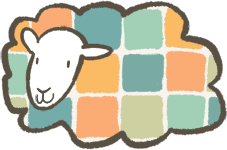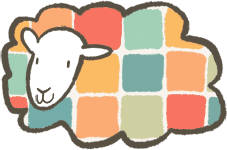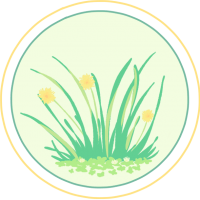Feeding your Sheep
Useful tips and info on a good natural diet for your sheep!
A healthy, nutritional, natural diet = a healthy sheep.

They don't just eat grass!
Contrary to popular belief, sheep don’t solely eat grass but will graze and browse on many different types of wild plants, flowers, weeds, leaves, tree bark and shoots. So best not to let them loose in your garden!
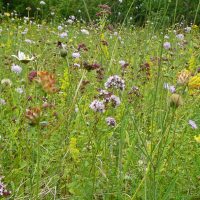
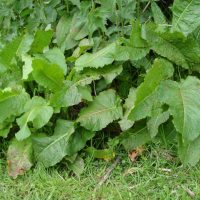
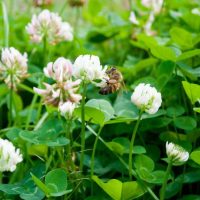
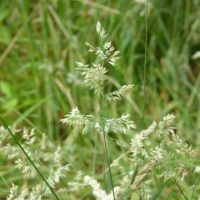
Feeding - the basics
Sheep live on a diet of roughage!
The main part of that diet should be grazing/browsing out in the field.
Ideally you should have enough grazing to provide your sheep with feed over the four seasons. Its cheaper for you and healthier for the sheep. This isn’t always possible and even if you have enough land, there will always be times when you need to be prepared to provide your sheep with extra feed, this may be in the form of hay or haylage if you don’t have enough grass in the winter, or if your sheep need to be housed. It may also be in the form of pelleted concentrated feed, during pregnancy, lactation or harsh winters and weathers.
Having said that, we do offer our sheep a small amount concentrate feed all year round. This ensures they are getting all the nutrition they need and keeps them nice and friendly, making life easier for us! We have sufficient grazing and hardly ever have to provide them with hay or haylage except when they are indoors if lambing or if we get exceptional snowfall.
A sheep will usually tell you if it is hungry! Tame sheep who associate you with food will make a lot of noise whenever they see you, if you don’t have enough grass on the field and they are standing around bleating and waiting for you you and not trying to graze, then they are hungry. If you are putting out hay or haylage and they are eating it then they need it. Sheep will always choose grazing pasture over hay or haylage. If they are getting enough food from grazing they won’t be very interested in hay or haylage you put out. If they munch down all the roughage you offer, they they defiantly need it and you should continue to offer it until the grass comes in.
Anytime you house your sheep indoors or confine them to a very small pen for a length of time you should offer ad lib hay or haylage as a grass replacement.
Taking the natural approach
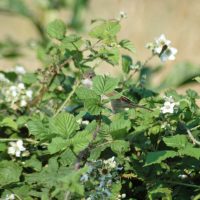
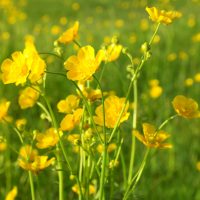

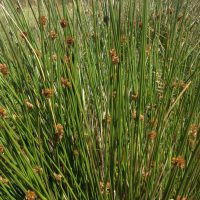
Taking the natural approach
Think Wild!
Wild animals, sheep included, are free to roam and eat as they please & need!
When we enclose our sheep in small grassy fields we are limiting their diet and nutrition on offer. Wild sheep are free to roam and consume different grasses, shrubs, trees & plants as they please and as their body requires them. Some plants have anti-parasite properties and others aid in times of illness.
Sheep thrive on a varied diet, and will thrive on fields which are not solely grass. Don’t worry if you have weeds in your pasture, or overgrown areas of shrub or rushes, these will provide variety in their diet at different times of the year. I observe my sheep eating gorse flowers in the Spring, reed seeds, nettle flowers and dock leaves in the Summer, come Autumn they will munch through the dying nettles and in Winter they strip the bark off fallen tree branches! And this isn’t because they are hungry, we have more than enough grass here for them and they do eat it & love it too but they eat far more different species of flora than we are often aware of.
flora that is beneficial and what to avoid
Friendly Flora
Sheep know whats good and will seek out what they need.
Sheep thrive when they are grazed on a varied pasture. They like having access to many different grasses, wildflowers, shrubs & trees. Some plants can be toxic when ingested in large enough quantities but in almost all cases a sheep will just eat what it needs and then move on to something else. If you are clearing your garden or an area of land you can offer some of the cut plants to your sheep, provided they are not toxic. Plants such as Brambles are a huge favourite of my sheep. We tie the cut Brambles together in a bunch using some old baling twine and hang the from a fence post or gate for the sheep to nibble. Tying them together prevents them getting tangled in the wool of the sheep. If we have fallen trees or are clearing an area we place the branches in the fields for the sheep to strip the bark and leaves before we chop up the wood for burning!
Sheep are so good at knowing what to eat you may find you need to fence off your hedgerows & young trees to prevent them from being damaged by your sheep and you certainly won’t want to let your sheep loose in your garden or fruit bush orchard!
Beneficial Plants for sheep:
- Grasses
- Brambles & Rasberry
- Current Bushes
- Dock
- Willow
- Hawthorn
- Blackthorn
- Fruit trees such as Apple
- Ivy
- Dandelion
- Parsley
- Rocket
- Coriander
- Sage
- Rosemary
- Sorrel
- Clover
- Nettle flowers & wilted/dying plants/chopped plants (Provided they have not been treated with weedkiller!)
- Rushes & it’s flowers
- Gorse & it’s flowers
- Thistle flowers
- Roses
Poisonous Plants
Generally speaking sheep will avoid these plants on their own.
Some plants are listed as toxic to livestock online, such as Ivy, Dock and Ragwort. However I witness my sheep eating these plants to no ill effect, in fact I purposefully leave Ivy branches in the field for my sheep & feed it to them as an appetite stimulant when they are sick. There is almost no Ragwort & Dock growing in the fields where my sheep regularly graze, because they eat them, but on our yard & driveway where we don’t graze the sheep they grow in abundance if left unchecked!
Other plants are renowned for being highly toxic and in almost all cases sheep will not eat them even when grazed in a field containing them. Sheep are not stupid, they learn what is good and what is not and if sufficient food is available they won’t touch toxic plants. We have a lot of Foxglove’s and Bracken growing on our land and the sheep never eat them.
Below is a list of some of the plants that are toxic to sheep and commonly found in the UK, it is not a list of every poisonous plant out there.
Poisonous plants:
- Bracken
- Cocklebur
- Deadly Nightshade
- Foxglove
- Hemlock
- Henbane
- Laburnum
- Marsh Marigold
- Monkshood / Wolfsbane
- Oak
- Ragwort
- Woody Nightshade
- Yew
Food for sick sheep


